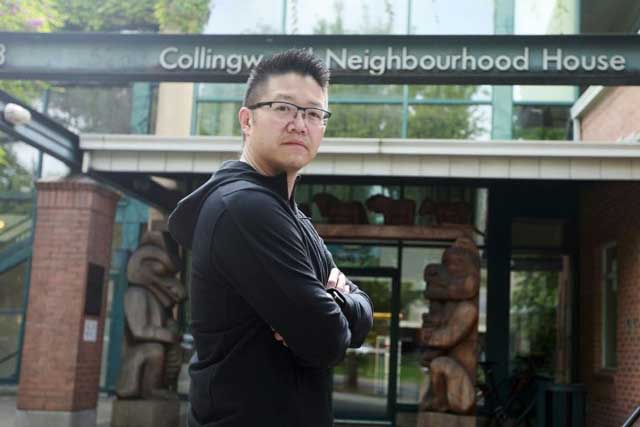
Chinese in Canada a target of increased hate during pandemic
by The IndependentVancouver, Canada | AFP | Vancouver resident Trixie Ling recalls her disgust and anger after a passing stranger taunted her with racial and sexual slurs in early May. Then he spat on her face.
“I was feeling a mixture of shock, disgust and sadness that it happened to me,” Ling said in an interview with AFP near the scene.
“But I knew I’m not the only one this has happened to.”
Ling is indeed not alone. From spitting and violent attacks, to verbal assaults and vandalism of Chinese cultural sites, Chinese residents of Canada’s third largest city — who make up 26 percent of its population, according to the last census in 2016 — say they feel increasingly unsafe and unwelcome.
A new survey obtained by AFP suggests the problem is deeply rooted: one in four British Columbians of Asian descent (70 percent of whom are Chinese) said someone in their household had been targeted with “racial slurs or insults” since March, according to the ResearchCo poll of 1,600 adults.
Vancouver police are also investigating 29 anti-Asian incidents over the past two months, seven times more than the same period last year, the police chief revealed.
Another Vancouverite who experienced racism during the pandemic helped launch an online reporting form for others to share their experiences anonymously.
Ellen, who asked to be identified by first name only, said the database will guide advocacy to combat racism.
“Very lewd, inappropriate and derogatory remarks and gestures, I’ve experienced quite a bit of that, mostly referencing characteristics of being Asian,” she said.
“The anticipation of what might happen to me is quite stressful, scary and disturbing.”
– Hate-mongering –
A stone lion statue on the historic gate of Vancouver’s 125-year-old Chinatown was vandalized last week with “China” and “Covid” graffiti.
A nearby Chinese cultural center’s windows were also recently vandalized. A mobile police surveillance camera trailer now monitors the area.
Canadian singer Bryan Adams, who recorded his biggest hits in Vancouver, inflamed tensions with a tweet blaming COVID-19 on “bat eating, wet animal market selling, virus making greedy bastards.”
Wet markets sell fresh food and produce, including farmed animals and wildlife.
One such market in Wuhan, China has been identified by the World Health Organization as a possible source or “amplifying setting” of the outbreak.
The “Cuts Like a Knife” singer later apologized for the “racist” post.
Vancouver church pastor Daniel Louie, who co-organized an online anti-racism town hall in mid-May, said criticism of China’s government must be distinguished from stereotypes about Chinese people.
The hate-mongering has also spilled out against people who were mistaken for Chinese or through association, including of Japanese, Korean or Vietnamese descent.
– ‘Shockingly high’ –
The ResearchCo poll also found that 24 percent of South Asians reported racist insults. Even Indigenous people reported being targeted.
“It’s so shockingly high, I had to go back to the calculations to make sure there was nothing wrong with the numbers,” said pollster Mario Canseco. The survey is considered accurate within 2.5 percent.
“There’s this element that comes out blaming an entire ethnicity for what is going on. It should be cause for great concern,” he said.
Vancouver resident Dakota Holmes, who is Indigenous, said a man told her to “go back to China” before punching her in the head, leaving Holmes on the ground with bruises after she sneezed from seasonal allergies.
“He said all these racial slurs,” Holmes recalled. “I’m Indigenous, not from Asia; he didn’t care.”
British Columbia Premier John Horgan condemned the rising acts of hate as “unacceptable,” saying that “racism is a virus” and “hate has no place in our province.”
But while political leaders, police and community advocates alike condemned the incidents, others want to see more aggressive preventive action by authorities, such as financial support for organizations serving the Chinese-Canadian community, offering victims mental health services, and backing initiatives to educate witnesses on how best to respond.
“I would focus the attention, if someone is being verbally abused, on the victim — not the person harassing them,” Louie advised.
Some advocates suggested that the racist incidents are not simply a short-term fad, but that the pandemic is bringing long-standing societal prejudices to the surface.
Recalling her assault, Ling said it “lit a fire” in her to speak out.
“People are afraid of going outside not because of COVID but because of their skin color,” she said.
“It’s important for all of us to do something when you see it happening — to not be ashamed or silent, because if many people speak out, that’s how we fight against racism.”
Share on: WhatsApp